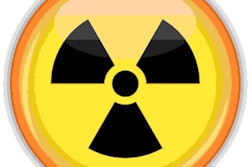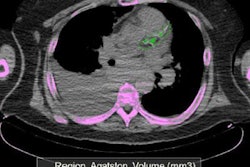Chinese researchers are touting the efficacy of a new radiotracer that targets the antigen CD20 in breast cancer that has spread to sentinel lymph nodes.
The study comes from Beijing Cancer Hospital, where clinicians are using technetium-99m (Tc-99m) rituximab to enhance imaging of sentinel lymph nodes for both preoperative and intraoperative breast cancer patients. So far, they also have achieved a greater success rate in the outcome of lymphoscintigraphy procedures (Journal of Nuclear Medicine, August 2016, Vol. 57:8, pp. 1214-1220).
Study co-author Zhi Yang, PhD, chair of the department of nuclear medicine, said the advantage of Tc-99m rituximab is its uniform molecular weight and size, which prevents it from easily escaping from sentinel lymph nodes to second-echelon lymph nodes.
The study included 2,317 patients with primary breast cancer who underwent both lymphoscintigraphy and sentinel lymph-node biopsy; the researchers randomly selected 100 with breast cancer. Their median age was 46 years, with a range of 27 to 73 years. The detection rate for sentinel lymph-node lymphoscintigraphy with Tc-99m rituximab among this cohort was 100%.
When the researchers expanded the study to the remaining 2,217 patients, the detection/success rate was 98.8% for lymphoscintigraphy and 99.9% for sentinel lymph-node biopsy.
Yang and colleagues noted that the tracer may have other applications as well, having also shown promise in lymphoscintigraphy of melanoma.




















